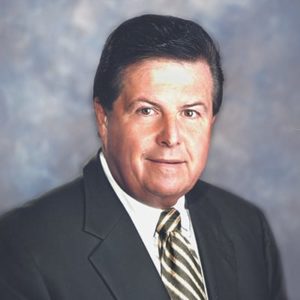So how did a fledgling symphony orchestra in a relatively small southern town begin with a symphonic conductor who has, over the course of a career spanning fifty years, conducted, taught violin, and directed some of the most celebrated orchestras in the country?
Some would say that luck, unpredictable life circumstances, or other factors defying measure were at work. However, Dr. Donald Portnoy’s idea of founding a symphony orchestra in Aiken gestated within him for some time before the orchestra actually became reality.
This son of Ukrainian Jewish immigrants came from humble beginnings in Philadelphia, where his parents encouraged him to take up the violin at the age of seven; it was an instrument he would later master.
Portnoy’s first big break came while a student at a Philadelphia junior high school, where, during a recital, he made an impression on a certain violin professor with ties to the Philadelphia Conservatory who immediately offered him a scholarship to that institution. This marked a serious introduction into the training of a professional musician.
Following high school, he auditioned for the Juilliard School in New York City and was accepted as a student of violin on scholarship. During his time at Juilliard he studied composition and conducting and perfected his violin technique. His ambition at that time was not to conduct an orchestra, but to return to Philadelphia and join its celebrated orchestra with an eye to becoming its Concert Master.
While at Juilliard he received his notice of conscription into the United States Army, but was allowed to complete his studies before beginning his enlistment — the Philadelphia Orchestra would need to wait.
As a Juilliard graduate, the Army was interested in having him audition for its orchestra, which he did at the Military Academy at West Point. In a humorous recounting, Portnoy describes the Colonel at West Point for whom he auditioned as saying, “We don’t need any more violinists, we need horn players,” and thus ended his army experience.
Not to be dismayed, Portnoy contacted the United States Navy School of Music in Washington DC. A friend suggested that he contact the United States Marine Corps Orchestra, which he did. He was immediately accepted into that organization and became a member of the United States Marine Corps. Indeed, because of his credentials, he was selected to become one of fifteen string players in the “President’s Own,” an elite group of musicians assigned to entertain at the White House for state dinners and visiting dignitaries. He passed his enlistment years playing for President John F. Kennedy, foreign dignitaries, heads of state including Queen Elizabeth, and others. And it was during this time that he pursued and received his Master’s Degree in Music from Catholic University in Washington DC.
In a humorous reminiscence from his Catholic University years, Portnoy describes his efforts teaching violin to Catholic nuns participating in the preparatory program, as “delightful, challenging, and a very interesting experience.” It was also at Catholic University that he began conducting orchestras.
During his time in Washington, Portnoy organized the American Arts Trio, consisting of violin, cello, and piano, which went on to win numerous competitions locally and regionally. In 1963, following his military discharge, Portnoy’s American Arts Trio came to the attention of the Dean at West Virginia University, with whom he successfully negotiated a lucrative placement for himself and his two fellow musicians as artists-in-residence. And, during his WVU years he pursued and received the Doctorate in Music Degree from the prestigious Peabody Institute at Johns Hopkins University. His interest and experience in conducting continued to grow and mature during these years.
In the late 1970s and early 80s Dr. Portnoy served as Music Director and Conductor of the Pittsburgh Opera Theater and the Pittsburgh Civic Symphony. Keith Lockhart, who would go on to become conductor of the venerable Boston Pops Orchestra, served as Portnoy’s assistant conductor. Portnoy’s reputation continued to spread, now nationally, as he was invited as guest conductor to Baltimore, Buffalo, and other major regional orchestras in the United States. It was also during this time that he founded the Conductor’s Institute, which gained an international reputation for excellence in the training of aspiring conductors.
From this point on, Dr.Portnoy’s growing reputation and career began to accelerate with invitations to conduct in Argentina, Brazil, China, England, France, Poland, Russia, and other countries. As a consequence, he began to develop relationships with world-renowned musicians, which would have advantageous ramifications in his later career.
In 1986 he was invited by the University of South Carolina to take up the post of Director of Orchestral Studies, and Conductor of the USC Symphony Orchestra. He was also Professor of Violin, and held the Ira McKissick Koger Endowed Chair
He continued in that post for thirty-one years, however, on a fateful day in 1991 he was invited by Maestro Harry Jacobs, founder of the Augusta Symphony Orchestra, for a performance as guest conductor. Portnoy was very well received by the Augusta audience, and took command of the orchestra on Jacobs’ retirement that same year, and held the post until 2009. During his years with the Augusta Symphony, he broadened its musical offerings in a number of categories, including the development of a relationship with the Aiken Symphony Guild, which brought the Augusta Symphony and quality music to Aiken annually.
For over twenty-five years Dr. Portnoy’s relationship with the Guild and the Aiken community deepened. By 2015 he was confident that Aiken, despite its small size, could support its own professional symphony orchestra. He also knew that the Aiken Symphony Guild would be the key to introducing his idea, which ultimately resulted in the formation of a new governing board of directors for the new Aiken Symphony Orchestra.
Since its founding, the ASO has been comprised of professional musicians drawn from throughout the CSRA. In 2015 Dr. Portnoy was awarded the Elizabeth O’Neil Verner Governor’s Award for the Arts, South Carolina’s highest award in the arts. In May 2016, he was awarded the South Carolina Order of the Palmetto. And, because of Dr. Portnoy’s reputation and the relationships developed during his career, the ASO has been able to attract accomplished musicians and world-renowned soloists, many of whom would not be attainable in Aiken were it not for Dr. Portnoy’s prestige and reputation in the industry.
In its first year of operation, 2015, the ASO offered three classical concerts. Each year the number of its seasonal offerings has grown, consistent with its acceptance and support within the community. Today it offers a seasonal program including four classical performances, three chamber, two pops, and one children/family program. This is all in addition to the annual Children’s Concerts in association with the Aiken Symphony Guild.
As support momentum increases, the future looks promising for the ASO, and thus far, Dr. Portnoy’s vision of a successful professional symphony orchestra for Aiken appears not only to be prophetic, but also right.
























